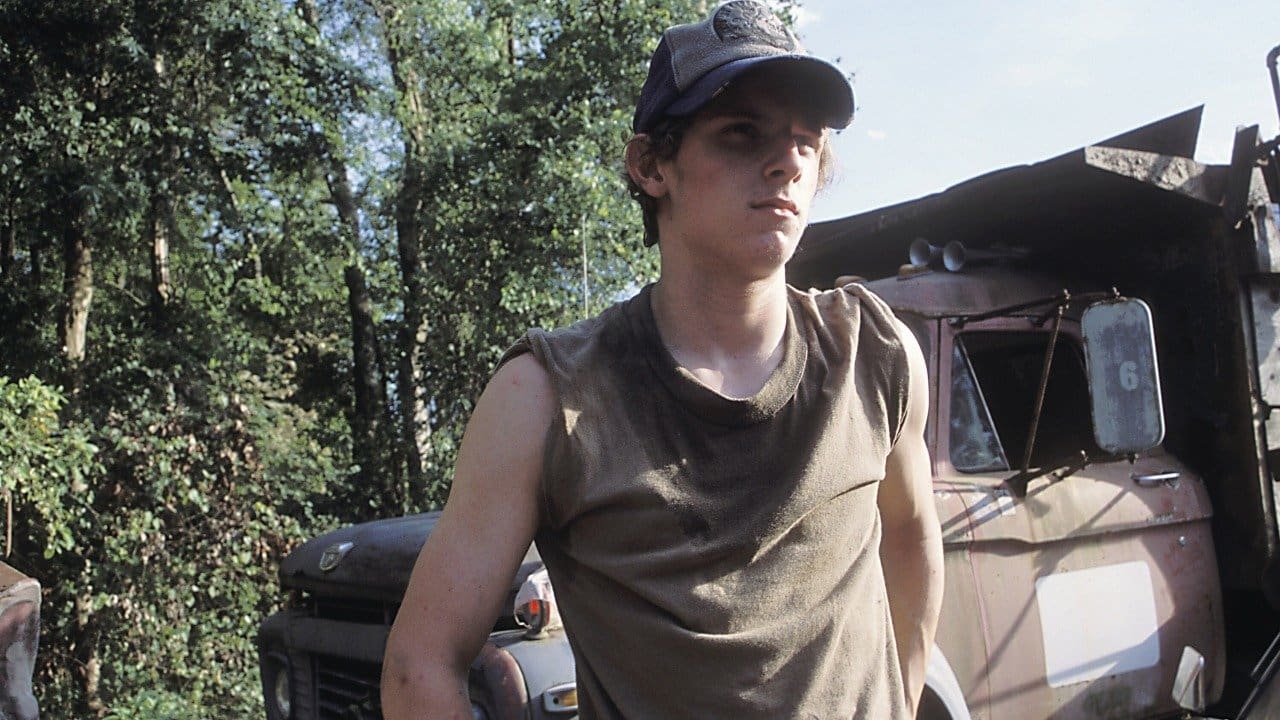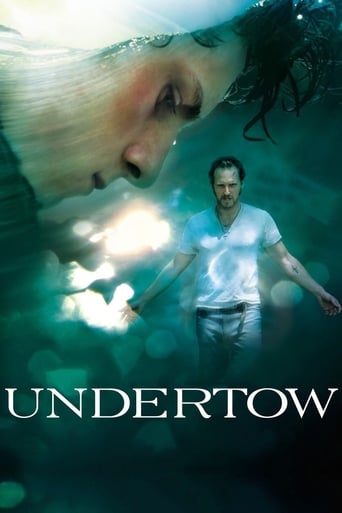

Self-important, over-dramatic, uninspired.
... View MoreMost undeservingly overhyped movie of all time??
... View MoreGood concept, poorly executed.
... View MoreIt really made me laugh, but for some moments I was tearing up because I could relate so much.
... View MoreAccording to IMDb, it was Terence Malick who brought this script to the attention of his chief disciple, David Gordon Green. It seems like what DGG originally had in mind was a lyrical, "Tree of Life"–type story focusing on Tim, the younger of two brothers who live with their widowed father in a farmhouse in rural Georgia. At some point he decided to switch over to a more bankable plot line, reminiscent of "Night of the Hunter," involving a hoard of gold coins that's hidden in the house and a covetous ex-con uncle. Thus, we get a few slices of Tim's story—he's a dreamy ten-year-old who suffers from pica (an eating disorder that makes him crave paint and dirt and such) and arranges his old paperbacks "by the way they smell"—intercut with faster-moving scenes of conflict and pursuit. Perversely, after all hell breaks loose (no spoilers here!) and the brothers run off with the gold, Green starts channeling in Malick at his most leisurely and reflective, and we get a lingering shot of a slow-moving woodland stream under Tim's improv'd monologue about chiggers and their habits The "Night of the Hunter" storyline stalls repeatedly so Green can splice in little comic vignettes of rural life—the uncle's encounters with a talky towtruck driver and a goofy cashier who swallows her gum, the wedding of a local boy and an Asian picture bride—that he'd clearly have loved to expand on. The final scenes play out in familiar DGG locales—a giant auto graveyard and a homeless encampment—but the film had totally lost momentum by then, and I couldn't get too interested in decoding their occult significance. (Earlier references to Charon and Christ's stigmata remind us that the original treatment was written by a prep-school English teacher.) No doubt that DGG's a brilliant filmmaker, but this seems to be one of those overstuffed auteurist efforts like "The Master" that have to be watched repeatedly on disk (including deleted scenes) before you can get much out of them. (Too bad that he didn't get a shot at "A Confederacy of Dunces," btw.)
... View MoreDirty Southern White-Trash Poetry is what this, and quite a few other Movies, have attempted. Mostly they are hardly watchable in their disgusting display of them without soap. The better Film makers make up for it in edgy Character behavior and haunting story lines.This is mostly successful in drawing the Audience to the, again, well worn, Story of youthful entrapment in a nightmarish Homestead and then ramping it up with a run for your life intensity. All the Actors are fine and the quirky Script has some lines that can take you aback. But the pulse of the Movie is the chase and it isn't bogged down too much by Malick-Speak of turning phrases and whispering voice overs.There is a bit of that but the weakest part of the Film is the last twenty minutes and the Ending is a real letdown. But it is worth the journey even though it takes place in that most unattractive of places, the undertow of the stinky, stenched, South.
... View MoreDavid Gordon Green explores the story in Undertow with an intention to tell the story, but there's also an intention to explore the spaces his actors inhabit, or run to, or from, and occasionally with the lyricism of a grungy street poet. This isn't to say the film is pretentious; it can be enjoyed by those who just want a good, harrowing chase movie. Yet it asks a little more for an audience complacent with the norm in Hollywood, used to the conflict being simplistic with respect to the characterizations. Its presentation calls attention to a director attempting to find the thematic beats through what could otherwise be a conventional ride. It's also no mistake to make the connection to films of the 70s, or specifically Terence Malick's austere visual approach; Malick is credited as producer, so it's bound to have some informal mark of his own somewhere.It's really a tragedy of the rural family, where a single father (Mulroney) raising two kids (Bell and Alan), the older one something of a troublemaker, constantly brought in to the cops. When the father's brother (a perfect antagonist in Lucas) gets out of prison and comes to visit, it's more than a friendly family call; greed and vengeance bring him there, and a horrible incident occurs that sends the two children running away, now with their uncle in tow. He's after some valuable old gold coins- family heirlooms or sacred Mexican lot, depending on what story is to be believed- and nothing will stop him. Meanwhile, the two kids (the younger of the two pretty sick most often) are left to their own devices, looking for work, hiding in junkyards, or with the help of fellow underworld travelers.Aside from that, which is the basic plot, a lot of Undertow sways between tense and taut drama and action, with a couple of really visceral fights and bits of violence, and an understated character study. There's the performances that feel right in the thick of it, with Bell giving it all in a breakout role. But it's just... hard to explain the sensibility that gives this an edge over other dramas out there. The setting is one thing, where for the most part (with a few exceptions) Green doesn't succumb to total clichés with these southern hobos and backwoods folk (or, at the least, there's a humanism caught by having what would appear to be non-actors in roles like convenience store clerks and tow-truck drivers). And also it's the cinematography, which is clear and cool and hand-held for some subjective impact, plus the eerie, unusual score by Philip Glass.All of these punctuations on a story that is dark and compelling are abound, but it's also this bond between the two brothers, and the memories that they share and how memories in general work into the narrative, that score Green success. It's about mood as much as plot, about sorrow and anger and fear and all these things, and it's never something to scoff as too artsy-fartsy. It's just about right.
... View MoreGold coins, betrayal, and murder figure in this story of two young brothers whose lives change forever when their father's brother unexpectedly shows up at their dreary farmhouse in rural Georgia. The older boy (Chris) is your typical rebellious teenager. But he protects and looks after his young brother (Tim), who has some kind of ailment that entices him to eat paint and dirt. Their father (John) is something of a morose deadbeat. Characters spend a lot of time brooding, especially in the first half. This slows the pace of the film way down.The visuals are very, very grungy, and none too flattering to backwoods Georgia. One sequence is set in a huge junkyard, with banjo music in the background. In this film you also get pigs and mud. The cost of production design must surely have been minimal. On the other hand, a lot of the story is set outdoors: a shipyard, a river, brushy thickets, a roofless building where street kids hang out.I'm not really sure what the point of this film was. Maybe it's the old idea that, under certain circumstances, children must fend for themselves when confronted with a crisis caused by greedy adults. In that regard, "Undertow" reminds me of "The Night Of The Hunter". But whereas the 1955 classic was dreamlike and poetic, "Undertow" stresses gritty realism.Acting and editing in "Undertow" are fine, as is the original score. Color cinematography is very good, although the use of freeze frames at odd times tends to be distracting. The film's ending is dramatic but rather ambiguous."Undertow" is a dark, brooding, and very slow-paced film with some good cinematography and acting. Because of its setting and its mood, it likely will appeal to viewers who enjoy Southern Gothic stories.
... View More